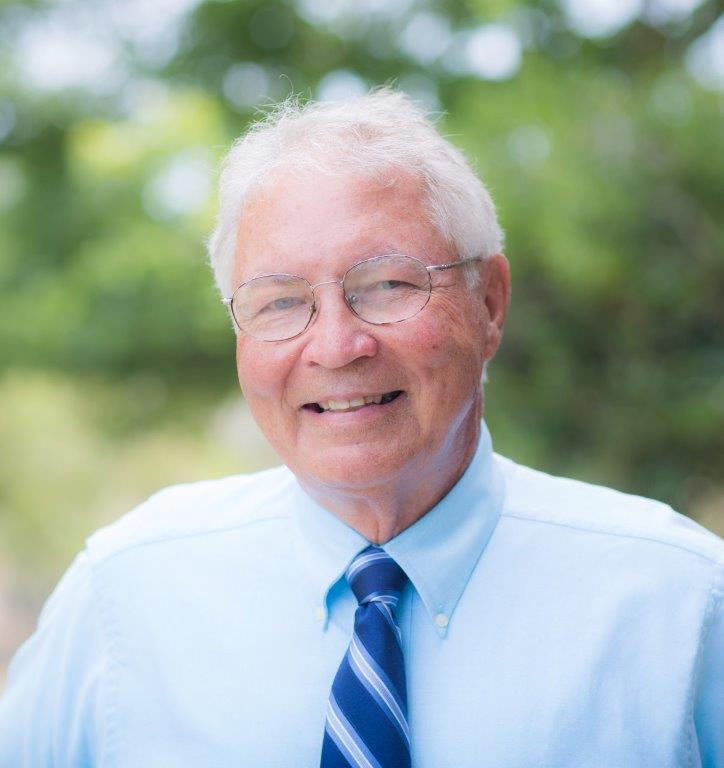Meet the Author
 Roger Stevenson spent the first decade of life on a cotton farm in South Carolina. There was a family expectation that he would go to college and medical school as the mantel for this pursuit had passed to him from an uncle whose education had been sidelined by World War II. His education and military obligation took him progressively farther north to Furman University (South Carolina), Wake Forest School of Medicine (North Carolina), Johns Hopkins Medical Center (Maryland), and the US Air Force (Alaska). In 1974, he returned to his native state and founded the Greenwood Genetic Center and the Greenwood Children’s Clinic. By this time, he had published his first medical book. Several editions of two other medical texts would follow. The Greenwood Genetic Center grew into an internationally recognized diagnostic and research institution. Roger and wife Leslie have made Greenwood their home for the past 50 years. Their four daughters and their husbands have thrived in this small community, contributing expertise in architecture, education, horticulture, medicine, and law.
Roger Stevenson spent the first decade of life on a cotton farm in South Carolina. There was a family expectation that he would go to college and medical school as the mantel for this pursuit had passed to him from an uncle whose education had been sidelined by World War II. His education and military obligation took him progressively farther north to Furman University (South Carolina), Wake Forest School of Medicine (North Carolina), Johns Hopkins Medical Center (Maryland), and the US Air Force (Alaska). In 1974, he returned to his native state and founded the Greenwood Genetic Center and the Greenwood Children’s Clinic. By this time, he had published his first medical book. Several editions of two other medical texts would follow. The Greenwood Genetic Center grew into an internationally recognized diagnostic and research institution. Roger and wife Leslie have made Greenwood their home for the past 50 years. Their four daughters and their husbands have thrived in this small community, contributing expertise in architecture, education, horticulture, medicine, and law.
Details
Format: Hardcover, Paperback, E-book
Pages: 188
ISBN HC: 978-1-962416-33-7
ISBN PB: 978-1-962416-34-4
ISBN EB: 978-1-962416-35-1
Release Date: 11/26/2024
Endorsements
“The Pinch Hitters engages the reader with deft descriptions of life on a South Carolina farm during World War II. The characters become real as they interface with oft-forgotten farm laborers from a German prisoners-of-war camp. Each chapter entices you to keep turning the page—a great read.”
—Angela W. Williams, author, Hush Now, Baby
“In The Pinch Hitters, Roger Stevenson seamlessly weaves together historical insight and captivating narrative, offering readers a poignant glimpse into a small farm community nestled in the South Carolina cotton belt during the tumultuous year of 1944. As the Second World War rages on, with most able-bodied men in uniform and serving overseas, the fabric of farm life frays under the relentless strain of wartime challenges. Stevenson deftly illuminates a lesser-known facet of the war, revealing the impact of some of the tens of thousands of German military prisoners relocated to camps in America. He explores the complex interplay between captor and captive, as well as the unforeseen ways in which their coexistence reshaped the dynamics of rural life by providing an unexpected pool of agricultural workers. Along the way, he reveals the color and texture of the South Carolina landscape and the tenacity of the human spirit.”
—Dr. David E. Shi, president emeritus and professor of history, Furman University
 Roger Stevenson spent the first decade of life on a cotton farm in South Carolina. There was a family expectation that he would go to college and medical school as the mantel for this pursuit had passed to him from an uncle whose education had been sidelined by World War II. His education and military obligation took him progressively farther north to Furman University (South Carolina), Wake Forest School of Medicine (North Carolina), Johns Hopkins Medical Center (Maryland), and the US Air Force (Alaska). In 1974, he returned to his native state and founded the Greenwood Genetic Center and the Greenwood Children’s Clinic. By this time, he had published his first medical book. Several editions of two other medical texts would follow. The Greenwood Genetic Center grew into an internationally recognized diagnostic and research institution. Roger and wife Leslie have made Greenwood their home for the past 50 years. Their four daughters and their husbands have thrived in this small community, contributing expertise in architecture, education, horticulture, medicine, and law.
Roger Stevenson spent the first decade of life on a cotton farm in South Carolina. There was a family expectation that he would go to college and medical school as the mantel for this pursuit had passed to him from an uncle whose education had been sidelined by World War II. His education and military obligation took him progressively farther north to Furman University (South Carolina), Wake Forest School of Medicine (North Carolina), Johns Hopkins Medical Center (Maryland), and the US Air Force (Alaska). In 1974, he returned to his native state and founded the Greenwood Genetic Center and the Greenwood Children’s Clinic. By this time, he had published his first medical book. Several editions of two other medical texts would follow. The Greenwood Genetic Center grew into an internationally recognized diagnostic and research institution. Roger and wife Leslie have made Greenwood their home for the past 50 years. Their four daughters and their husbands have thrived in this small community, contributing expertise in architecture, education, horticulture, medicine, and law.





